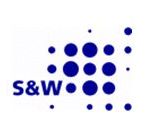Cameron Bridge, Scotland - 2016
Domain of application: Local
Status: Existing
Stakeholders:
- Veolia
- Diageo's Comeronbridge Distillery
Working with Diageo’s Cameronbridge Distillery, the company Veolia have developed new technology to recover energy from the by-products of whisky production.
Distillation is an energy-intensive process that has traditionally been reliant on fossil fuels. Because of this, distillers are always looking for sustainable ways of dealing with the waste they produce to improve their environmental footprint and deliver energy savings.
The organic by-products of whiskymaking have great potential as a renewable energy source: draff and pot ale from malt distilling and spent wash from grain distilling. ‘Spent wash’ and ‘Draff’ are residues from spent grains, and ‘pot ale’.
Vast quantities of these by-products are created in the whisky industry every year. Draff has traditionally been used as ‘dark grain’ animal feed, fertiliser or soil conditioner because of its high organic content, while pot ale is often treated and disposed of via the local water course.
It has developed a system that separates spent wash and draff into solids or liquids (aqueous streams). The solids, or biomass, can be used as a fuel, whilst anaerobic digestion is used to produce biogas from the liquid.
Both the biomass and the biogas can be used to create steam or electricity. We also treat the liquid to create clean water. All of these resources (power, steam and water) are recycled back into the distillery, providing a sustainable production facility that minimises its impact on local resources.







